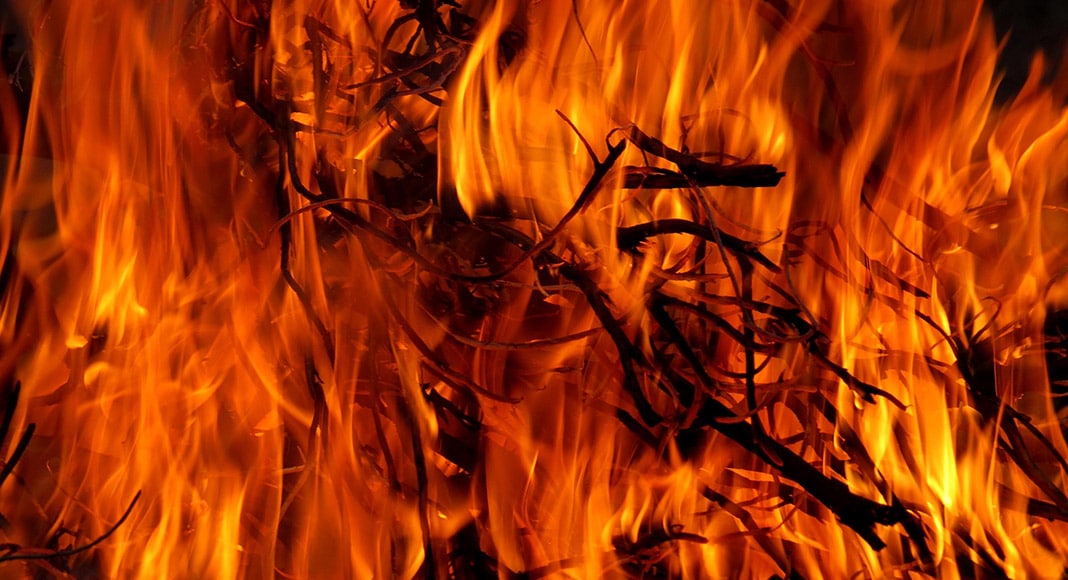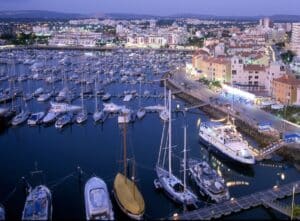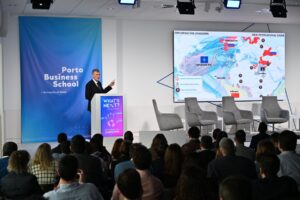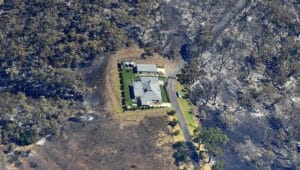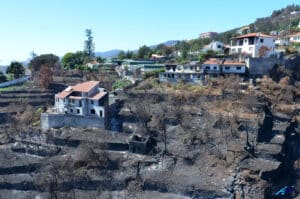The purpose of this feature is to illustrate the impact that extreme weather has in bringing about the drought situation that exists in Portugal and how this further impacts our preparatory work in the event of rural fires this year.
Portugal is one of the European countries most affected in the last 40 years by extreme weather events in terms of premature deaths and economic losses, according to a recent report by the European Environment Agency.
These extreme events include meteorological events such as storms, hydrological events such as floods, or climatological events such as heat waves, cold waves and droughts, and in Portugal they also have a significant impact.
Since the beginning of the year, there have been over 1,000 rural fires in Portugal of which more than 450 occurred from January 28 to 30. Over 85% of these fires during that period were in the far north, as a consequence of debris or land burning which was not authorised or was approved but was not properly controlled. On January 28, two fires broke out in hard-to-reach mountain areas and one broke out in a forested area near a village. There were no populations or homes in danger.
The largest of these fires occurred in the Montesinho mountain range, in the district of Bragança, where firefighters, land and air resources were sent at 8am on the 28th, and it was only subdued in the afternoon of the following day. This fire broke out in the Lama Grande area and was the most worrying due to the extent and difficulty in controlling it, confirmed the ANEPC (National Emergency and Civil Protection Authority). The estimate points to the possible destruction of 2000 hectares in Portugal and Spain, where the fire spread.
Rain has been lacking and the situation of drought in most of the country is reflected in very low levels of relative humidity which, associated with the east wind and the absence of what is called “the nocturnal recovery” of humidity when the sun goes down, leads to an increased fire hazard when there is a fire. In fact, at the time of the above fires, the relative humidity levels were as low as 11% in the afternoon in this general area, a similar level one would experience in summer.
For this reason, ANEPC decided to prohibit the burning of debris and extensive burns for a period of four days until weather conditions improved.
Fires in the winter are not very common, but they are not unheard of either. Fires in the winter months have to do with weather and climate conditions and there have been previous years when these have also occurred.
Temperature extremes
In January, in fact, the maximum air temperature of 24.5°C in Zambujeira was the highest for that month in the last 90 years, and in respect of precipitation it was the sixth driest since 1931. In Spain, the situation is similar and, on February 2, the country experienced a maximum temperature of almost 30°C.
According to the IPMA (Portuguese Institute for the Sea and Atmosphere) PDSI2 index at the end of January, the meteorological drought that started in the entire territory in November 2021 has worsened significantly. In relation to December, there was a significant increase in the area and in the intensity of the drought, being as at January 31: 1% in weak drought, 54% in moderate drought, 34% in severe drought and 11% in extreme drought.
According to the IPMA, their long-term forecasts indicate February will have less rain and higher temperatures of +1°C to +6°C than normal for this month.
A consequence of this is that vegetation growth is slower than usual – simply due to lack of water. In the Algarve, rain is preventing the growth of pastures and threatening the survival of farmers of Algarve breeding goats, who say they cannot afford much more the increase in the cost of feeding their animals.
Another consequence is that the use of water for electricity production has been suspended at some dams. At the Bravura dam, in the Algarve, it is no longer possible to use the water for agricultural purposes given the magnitude of the drought.
Impact on land cleaning
Normally, land cleaning required in order to help protect property against rural fires should be completed by March 15 each year, although in the last two years the deadline has been put back to May due to Covid-19 restrictions. However, we must not assume that this will be the same this year.
Should the weather forecast by the IPMA materialise, we would expect that there will be more days and more municipalities where the rural fire risk reaches very high or even maximum than normal for the time of the year. This means that specific authorisation is required to burn cut and piled debris and, when the fire risk is maximum, the prohibition of motorized cutting equipment using metal blades such as strimmers and chainsaws comes into effect.
Should the situation dictate, the government may well again place a ban on such activities as was the case for four days in January.
In effect, this means that we could end up with less days to undertake land cleaning due to unfavourable weather conditions.
It is advised, therefore, to start land cleaning early and do not delay this work when the weather and consequent restrictions may make this more difficult before the deadline. Given that over half of rural fires start from burns becoming out of control or lack of authorisation, the longer this is left, the more likely uncontrolled fires will take place due to the weather conditions favourable to the start and spread of fires.
Given the situation so far this year, we may well find that Portugal is at greater fire risk than in more recent years, so it is important we take all measures to prevent and be prepared for rural fires.
By David Thomas
|| features@algarveresident.com
David Thomas is a former Assistant Commissioner of the Hong Kong Police, consultant to INTERPOL and the United Nations Office on Drugs and Crime.
In 2011, he founded Safe Communities Algarve to help the authorities and the community prevent crime. It is now registered as Associação SCP Safe Communities Portugal, the first national association of its type in Portugal.
913 045 093
info@safecommunitiesalgarve.com
www.safecommunitiesportugal.com

